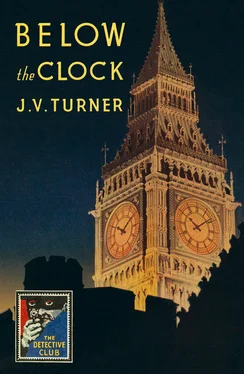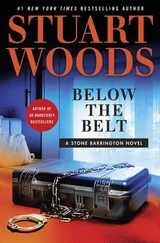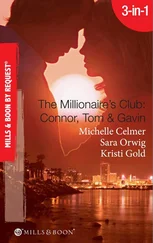Twenty-seven of Hume’s books featured Mick Cardby, two of which were adapted into films: Crime Unlimited (1935, remade four years later as Too Dangerous to Live ) and They Called Him Death (1941, entitled The Patient Vanishes ). Hume also wrote a trilogy of novels about crime reporter Tony Carter, and under his Nicholas Brady pseudonym he created the eccentric amateur sleuth, Reverend Ebenezer Buckle. But it was using his own name that Turner wrote more traditional detective novels of the kind that are now characterised as ‘Golden Age’, although they had a darker vein running through them than many of their cosier contemporaries. The first, Death Must Have Laughed (1932, published in the US as First Round Murder ), was a classic impossible crime story, and featured an amateur detective, the solicitor Amos Petrie, and his long-suffering Scotland Yard counterpart, Inspector Ripple: Below the Clock was their last, and arguably most accomplished, case, and outsold the others—maybe in part thanks to its striking but understated jacket featuring a painting of that famous Westminster clock tower.
As well as writing the hardboiled books (as David Hume) for Collins from 1933 right up to his death in 1945—they were still being published a year after he died—he also participated in the collaborative novel Double Death (1939). Often mistaken for a Detection Club book, on account of its principal authors being Dorothy L. Sayers and Freeman Wills Crofts, in fact it was not, and none of the other collaborators were members of that august body. At Turner’s suggestion, the writers each included notes in the book about the others’ contributions, which although interesting to the fan did rather highlight deficiencies in the novel, which was unfortunate at a time when the ‘round-robin’ format had begun to drop out of fashion. He also co-wrote the screenplay for the 1941 adaptation of Peter Cheyney’s Lemmy Caution novel, This Man Is Dangerous .
Sadly, Turner’s reign as one of the most reliable crime writers in the UK came to a sudden end. On Saturday, 6 February 1945, he died from tuberculosis at Haywards Heath in West Sussex, aged only 39. His early death and the transitory nature of authors’ popularity have sadly resulted in Turner, Brady and even Hume becoming almost entirely forgotten about, and the books very hard to track down. It is to be hoped that the republication of Below the Clock will be the first step towards this remarkable and in many ways trailblazing talent being rediscovered by mystery and crime fans.
DAVID BRAWN
August 2017
IN THE SPOTLIGHT
THE House of Commons has its moments.
Ascot bends a fashionable knee to hail Gold Cup Day with an elegant genuflection, Henley hesitates between pride and sophistication to welcome the Regatta, Epsom bustles with democratic fervour as Derby day approaches, Cowes bows with dignified grace as curving yachts carve another niche in her temple of fame, Aintree wakens and waves to saints and sinners on Grand National day, and Wimbledon wallows for a week in a racket of rackets.
The House of Commons has its Budget Day …
The afternoon sun broke into a smile after an April shower, and beamed through the leaded glass in the western wall, throwing lustre on the dark-panelled woodwork, turning brass into a blaze of gold, brightening the faces of Members of Parliament, revealing dancing specks of dust so that they scintillated with the brilliance of diamonds. One widely elliptical ray wandered from the stream of the beams, and bathed the spot where Edgar Reardon, Chancellor of the Exchequer, was to stand. The ray glistened on the brassbound despatch box at the corner of the table and shimmered beyond to waste its beauty on the floor. Nature, in a generous moment, had provided a theatrical spectacle.
The flood of golden light brought no solace to the men who stared at it from above. For the leaders of finance and industry shuffled their feet on the floor of the gallery, and waited for the worst while hoping for the best. They were not thinking of happy omens, portents, and auguries as they eyed the sun beaming on the despatch box. With the passage of years their hopes had faded until budgets meant burdens. Ladies in the grille abandoned their furtive whispers to advance with muffled tread and peer over the brass-work in front of them, looking first of all for relatives, and later, for celebrities.
Members blinked as the sun winked in their eyes. The lambent glow was even noticed by the Cabinet Ministers, who sat out of the beams, arrayed on the Treasury Bench, endeavouring to look as wise as Pythian oracles. The wandering radiance actually distracted attention from Mr Speaker, resplendent in his robes, although an errant ray stabbed a glimmer on the silver buckle of the shoe which he elevated so carefully in the general direction of Heaven. The sun had fascinated the spectators so effectively that few spared a thought for the lesser glories of the Sergeant-at-Arms, although he wore archaic dress, and exercised his privilege of being the only person in the House to bear a sword.
In the minds of the onlookers the sunbeams had one competitor. They were thinking of the man for whom the vacant place on the Treasury Bench had been reserved—and of his deficit!
A stranger casting a casual glance round the House might well have imagined the Members as wholesale breakers of minor laws. For each one apparently held a police summons in his hand. But they were not summonses—only blue papers giving details of how the deficit was made up, but not a single hint of how it was to be met. The filling of the gap between revenue and expenditure was reserved for a white paper, perhaps so coloured to signify the cleansing power of gold, maybe so blanched to prepare the nervous for the shock, but never issued until industry trembles and the City is at rest.
Joe Manning, the Opposition leader, flung down his blue paper as though the sheet were wasp-ridden and turned to Fred Otwood—a small, beetle-browed man who had been Chancellor in the previous Government, and hoped to repeat the performance in the next.
‘Fred,’ said Manning aggressively, ‘if Reardon runs his household as he does national finance the bailiffs would have called on him long ago. As a Chancellor of the Exchequer he’d make a good confidence man.’
‘I said that last year,’ remarked Otwood wearily, ‘and the tale’s getting a bit worn at the corners. No sense in attacking Reardon whatever he says. After all, Joe, somebody has always to pay.’
Manning pulled his whiskers into a new shape and looked at his lieutenant somewhat critically. There were times when Otwood seemed to lack all the requisites for instructing and moulding public opinion. The former Prime Minister glanced away from the sunlight and looked along the line of faces on the Treasury Bench.
‘I can’t understand it,’ he remarked. ‘They’re all smiling as if they were disposing of a surplus. Anyone would think that Willie Ingram had arrived to give a present to the nation.’
Ingram, the Prime Minister, had a flabby face, a fleshy nose, an outsize in eyebrows, and a polished skull. The eyes redeemed other features. They were brightly keen and puckishly humorous.
‘He must think he’s backing a winner,’ said Otwood.
Joe Manning continued to stare at them until he suddenly gripped Otwood’s arm and whispered another pointer for his forthcoming speech:
‘Callous indifference, Fred. That’s the note to strike.’
‘Perhaps it’s still a good line, Joe, but doesn’t it begin to sound a bit like a cracked gramophone record?’
The conversation was halted by a new arrival. Tranter, a doctor from the north, made his way with difficulty to a place behind them, and sat perched upon the knees of two unwilling supporters. Tranter had one fixed panacea for political ailments, but each time he produced it with the earnestness of an original performer.
Читать дальше












